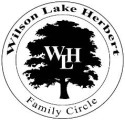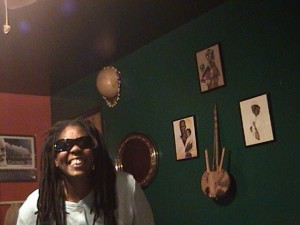If you’re someone who feels that “nigga” is a term of endearment that empowers Black people by removing the sting of racism from the word, or if you’re a rapper who loves your “niggas” like you all escaped from Candieland plantation together and call each other “my nigga” to remember where you came from, then Abena Afreeka‘s “Nigga Recovery Program” just might be for you.
Though the program has been in the conceptual stages for close to a decade, the Philadelphia therapist was motivated to kick it into overdrive after seeing the accolades heaped onto the shoulders of Hip-Hop heavyweights, Jay-Z and Kanye West, for their club smash, “Niggas In Paris.”
Because people of African descent have never engaged in the process of healing for experiences and effects of those experiences that came out of that term, continued use of the term without attending to deep emotional wounds is irresponsible on the part of all parties involved,” said Afreeka to The Philly Post. So I’ve developed this program, and am asking other folks of African descent, and Jay and Kanye, asking them and inviting them to engage in the process of recovery.
Afreeka goes on to explain the logistics of the therapy group and what participants can expect:
They will meet with me in a group. It’s a group intervention. There would also be some individual work. They would complete a cultural genogram, they would learn to understand their relationships, their history, they would work to learn and understand self. This is substance abuse, the substance being using the N-word. And many of them are benefiting from using that substance.
The use of the word has been in the news once again recently due to self-proclaimed comedian, Lisa Lampanelli, calling Lena Dunham, the creator of HBO’S hit series, Girls, “my nigga” on Twitter. Both women are White.
In a strategic interview conducted by actress Pia Glenn for XOJane.com, a defensive Lampanelli felt compelled to explain to a Black interviewer why Black people shouldn’t be offended by White people using the word:
“The N-word ending in ‘er’ is far different context from the word ending in ‘a.’ Ask any person who knows the urban dictionary, it means ‘friend,’” she said. “And by the way, if I had put the word ending in ‘er,’ that would have been a very derogatory thing about Lena meaning she is less than me, and I view her as very above me. ‘A’ on the end means ‘my friend.’”
“I’ve played every comedy club and every theatre across the country for the last 25 years and seen a lot of audience members from different ethnic persuasions,” she continued. “I have been using these words since I started in comedy and guess what, people? I won’t stop anytime soon, just because your ass is up on Twitter. I have always used in my act every racial slur there is for Asians, blacks, gays, and Hispanics. To me, it’s acceptable if the joke is funny and if it is said in a context of no hate. It’s about taking the hate out of the word.”
*Crickets*
According to Afreeka, we live in a world of “White lunacy” where the use of the word “nigga” has become commonplace and the illness — brought about by historical trauma — must be treated like any other addiction, scientifically and systemically.
So how long will this treatment take?
“As with most treatment for folks in mental and behavioral health, treatment time varies,” said Afreeka. “You start with where the person is, assess and go from there. The cost is on a sliding fee scale. Rap artists like Kanye and company would be expected to give more.”
~~~~~~~~~~
Respectfully Submitted by Abena Afreeka (aka, Joanie Hairston McCollum). Abena said she is honored to contribute her work to the Newsletter and hope that the family appreciates it.
Abena is a daughter of Patricia Nelson-Hairston-Stuart; granddaughter of Morris Haley and the late, Luecretia Herbert Haley and Great granddaughter of the late, Bessie Lake Herbert and Fletcher Herbert
~~~~~~~~~~~~~~~~~~~~~~~~
~~~~~~~~~~~~~~~
~~~~~~

